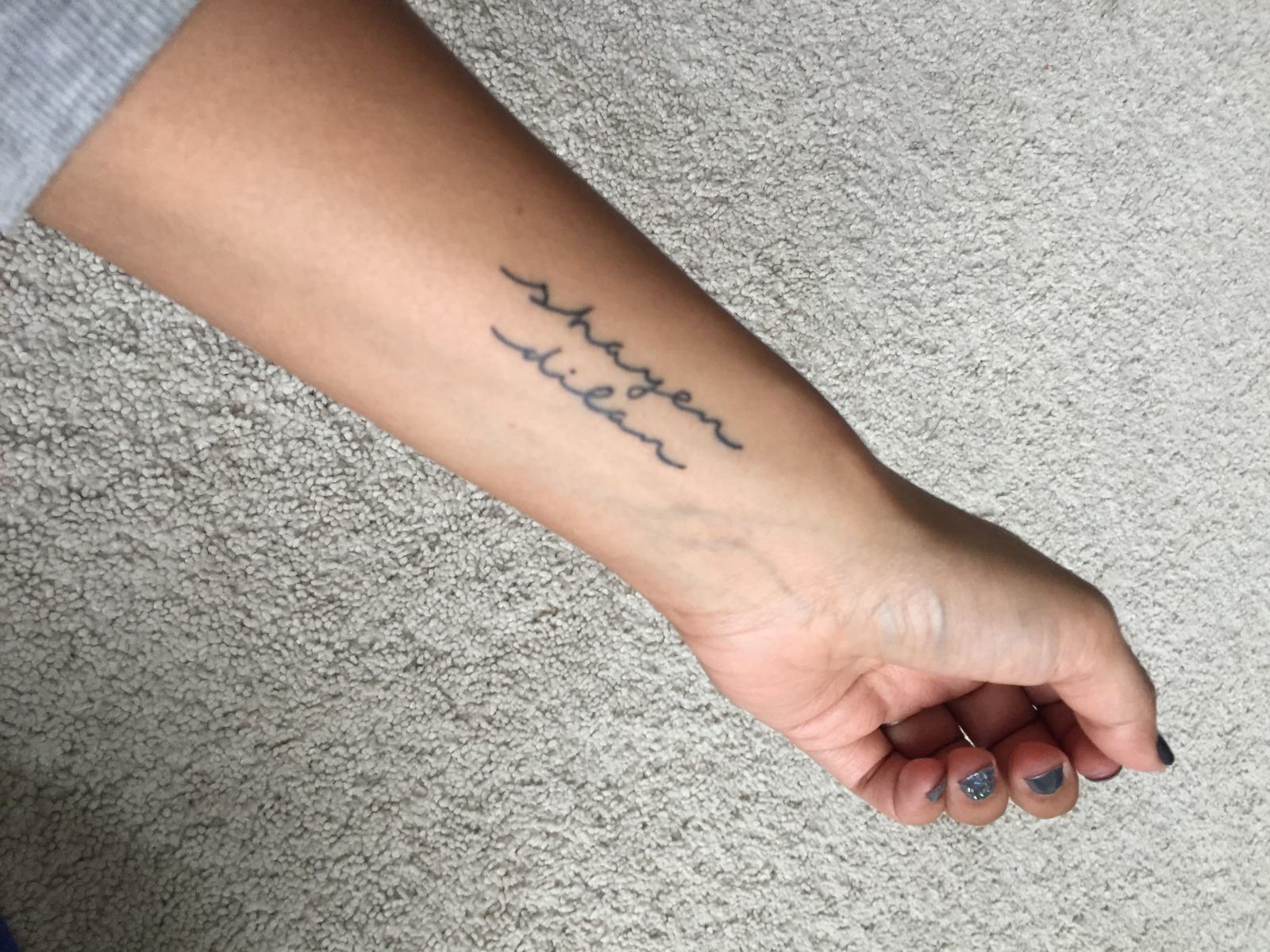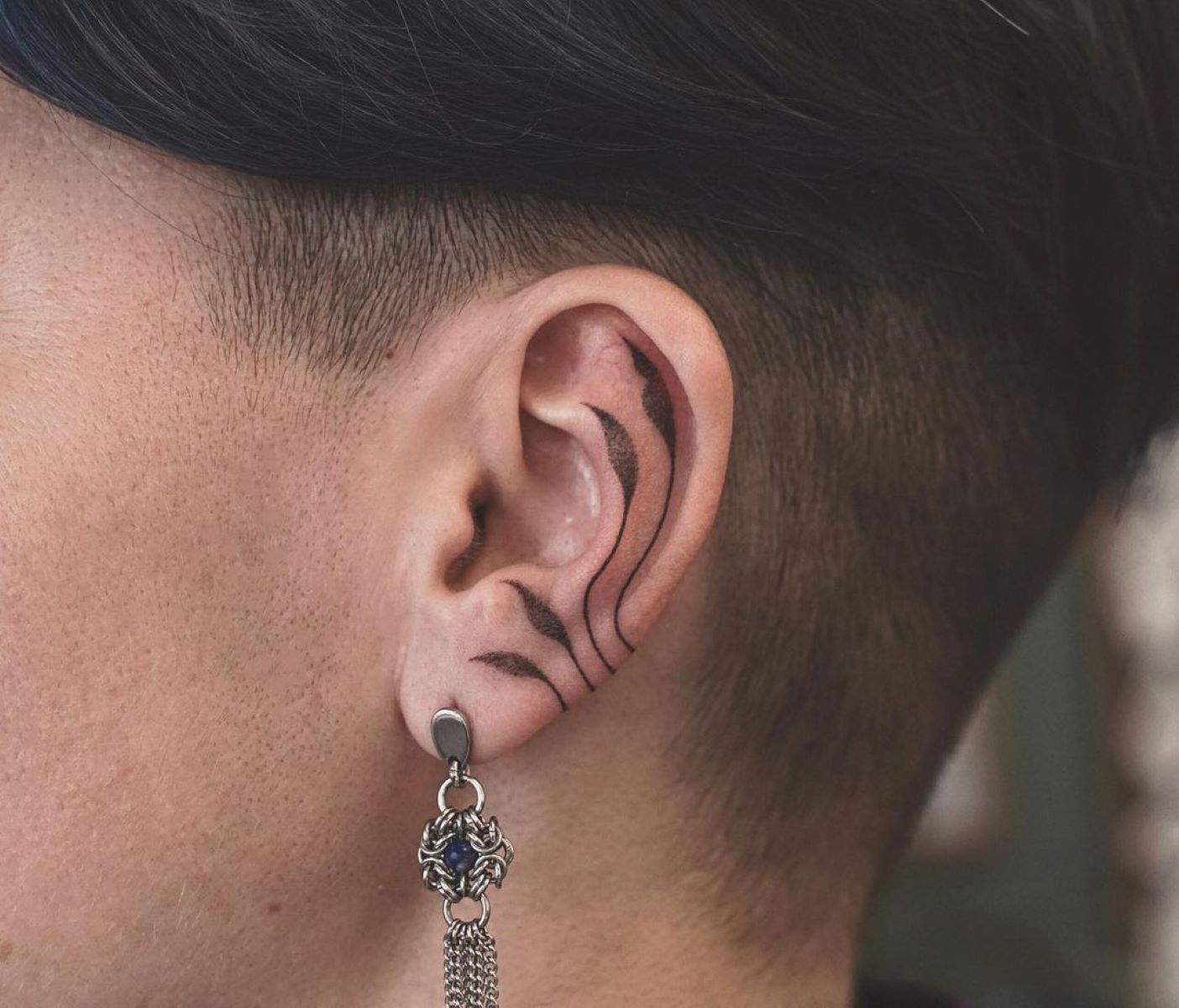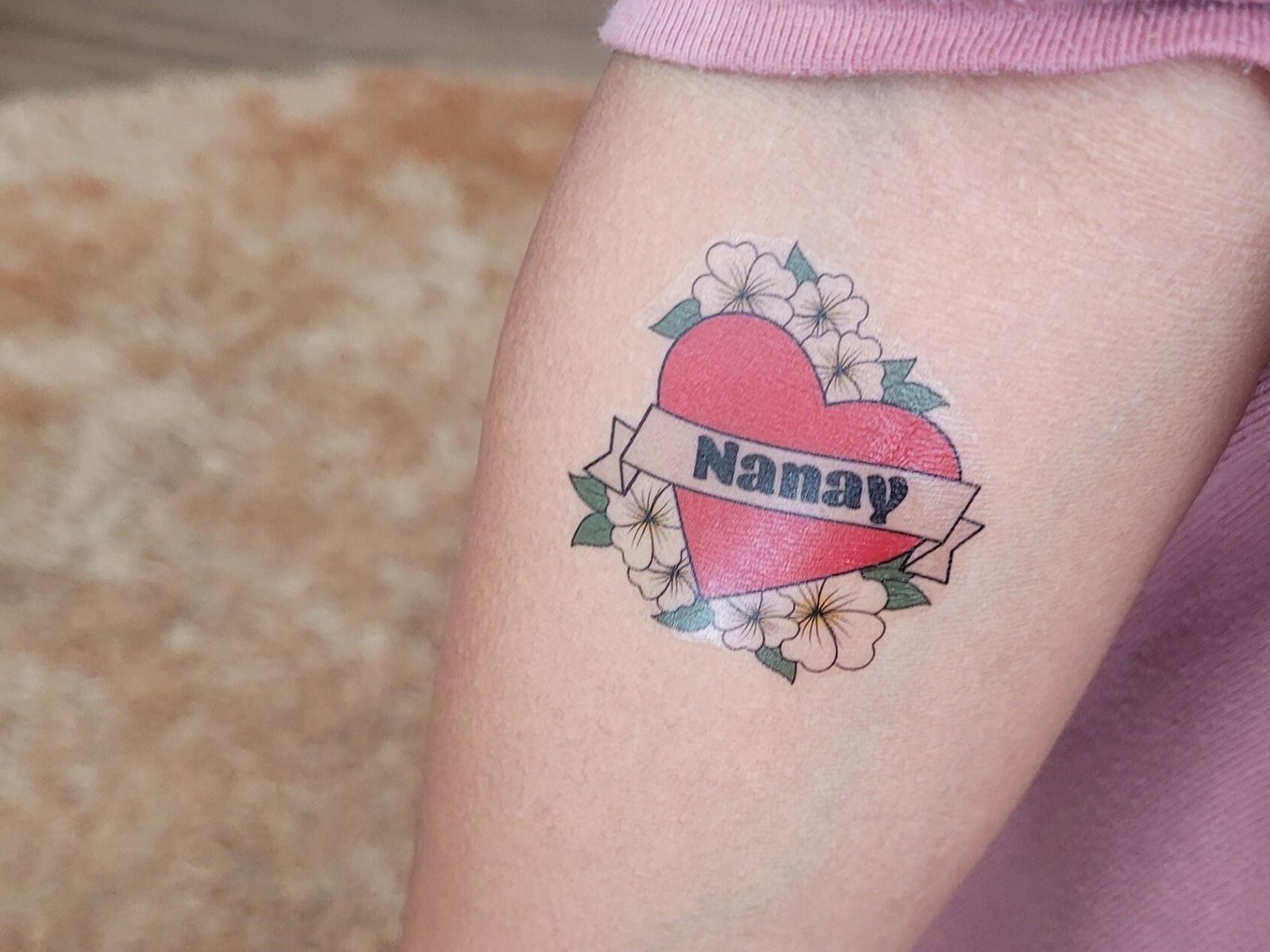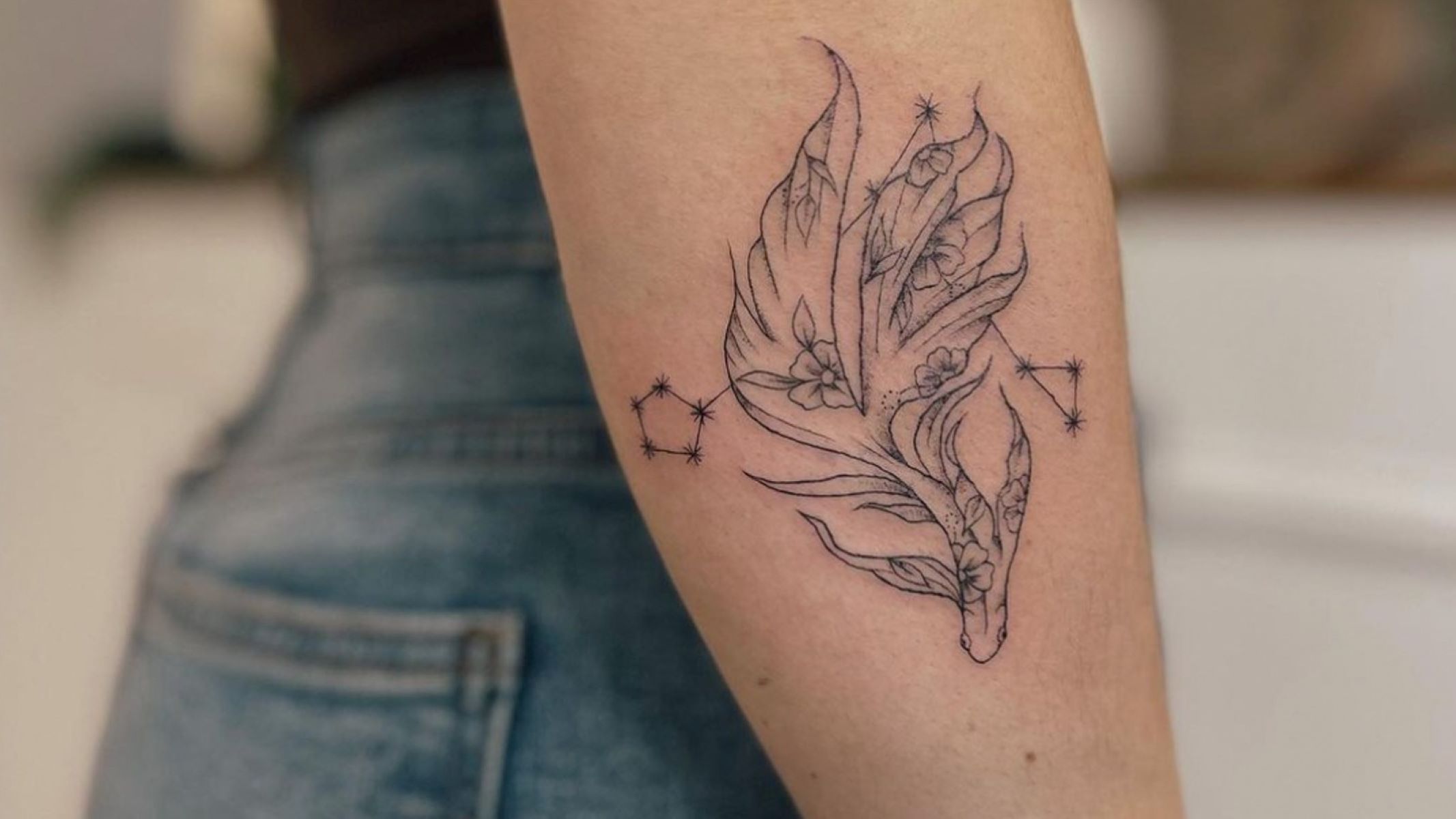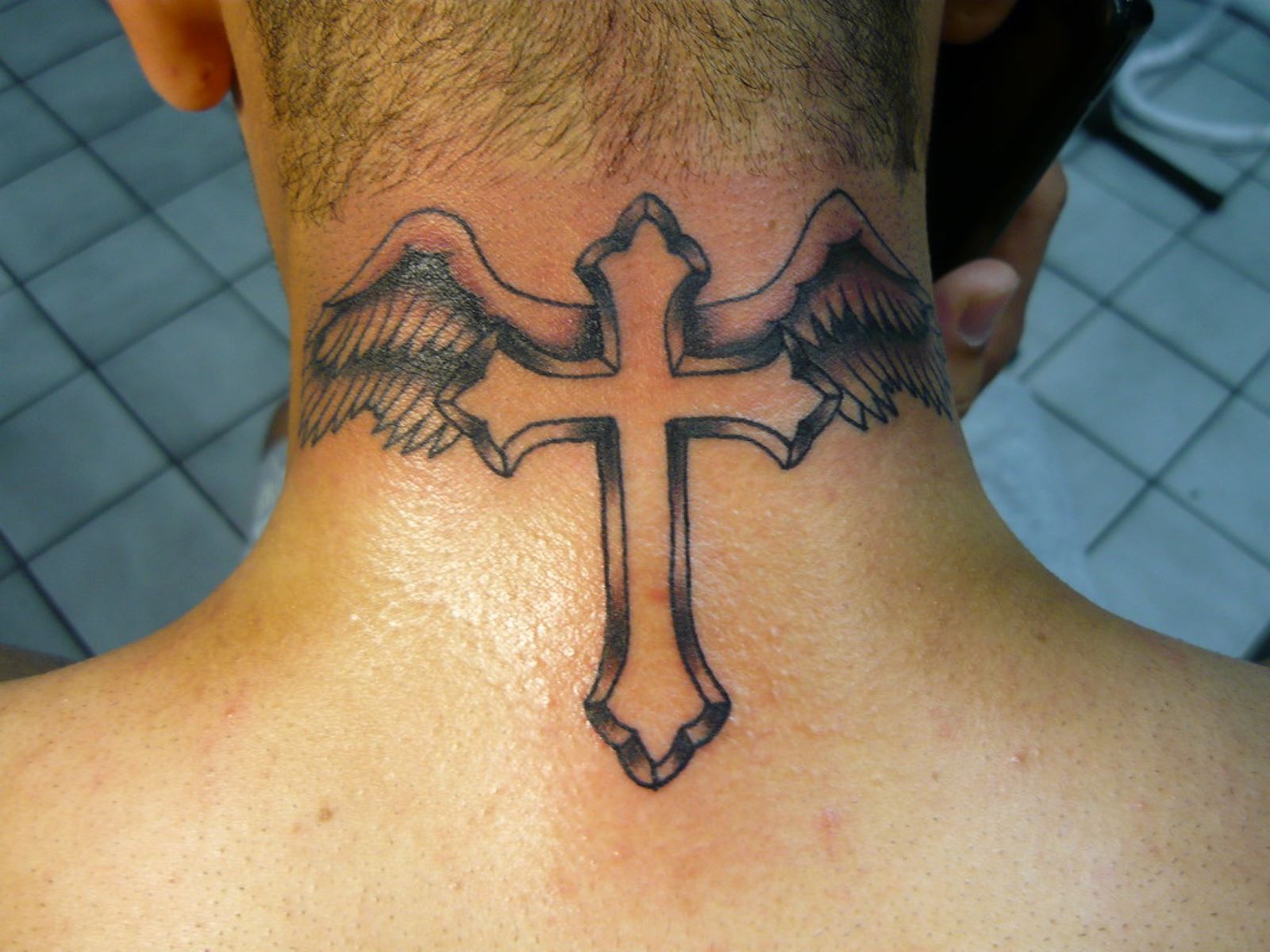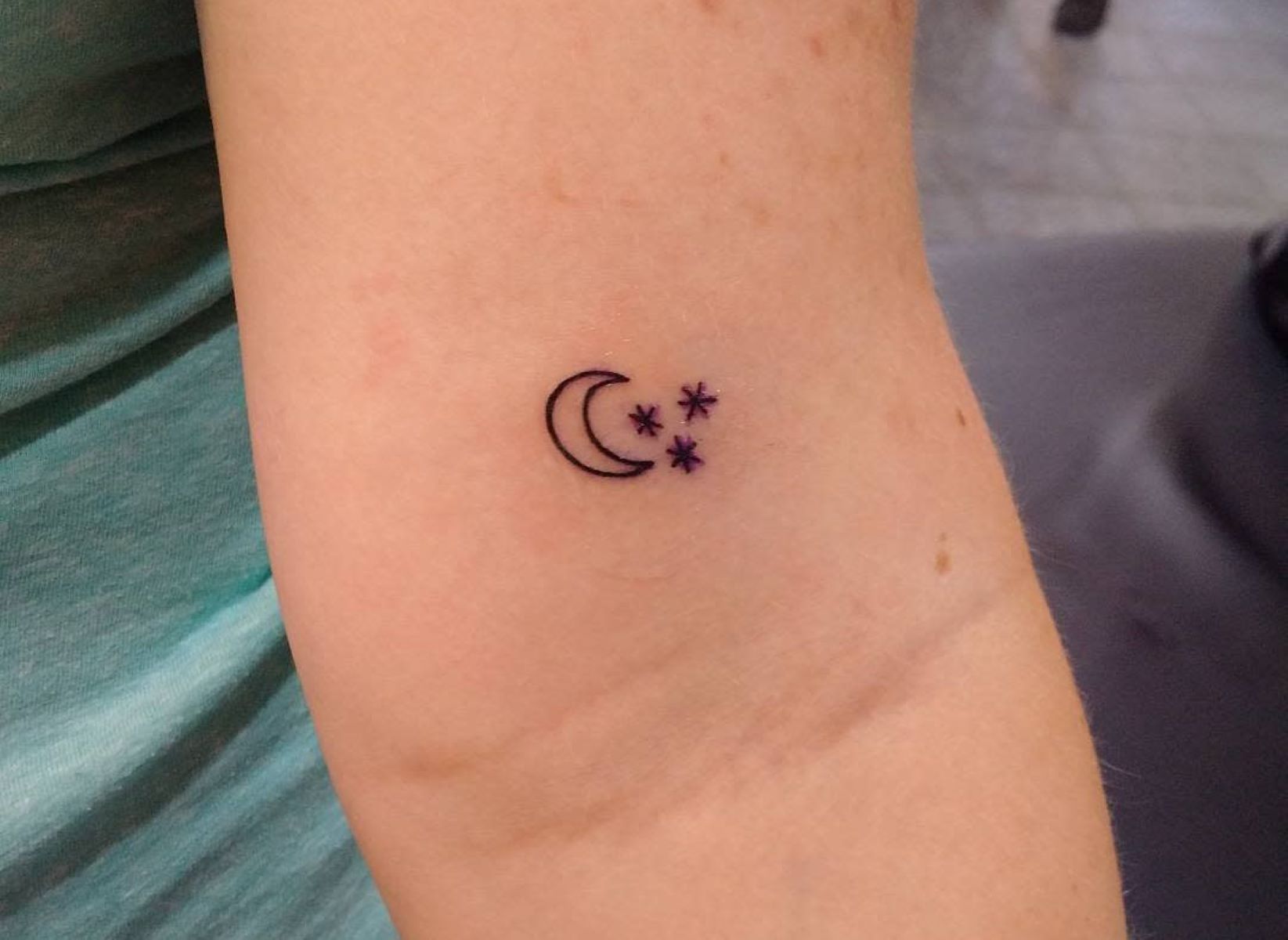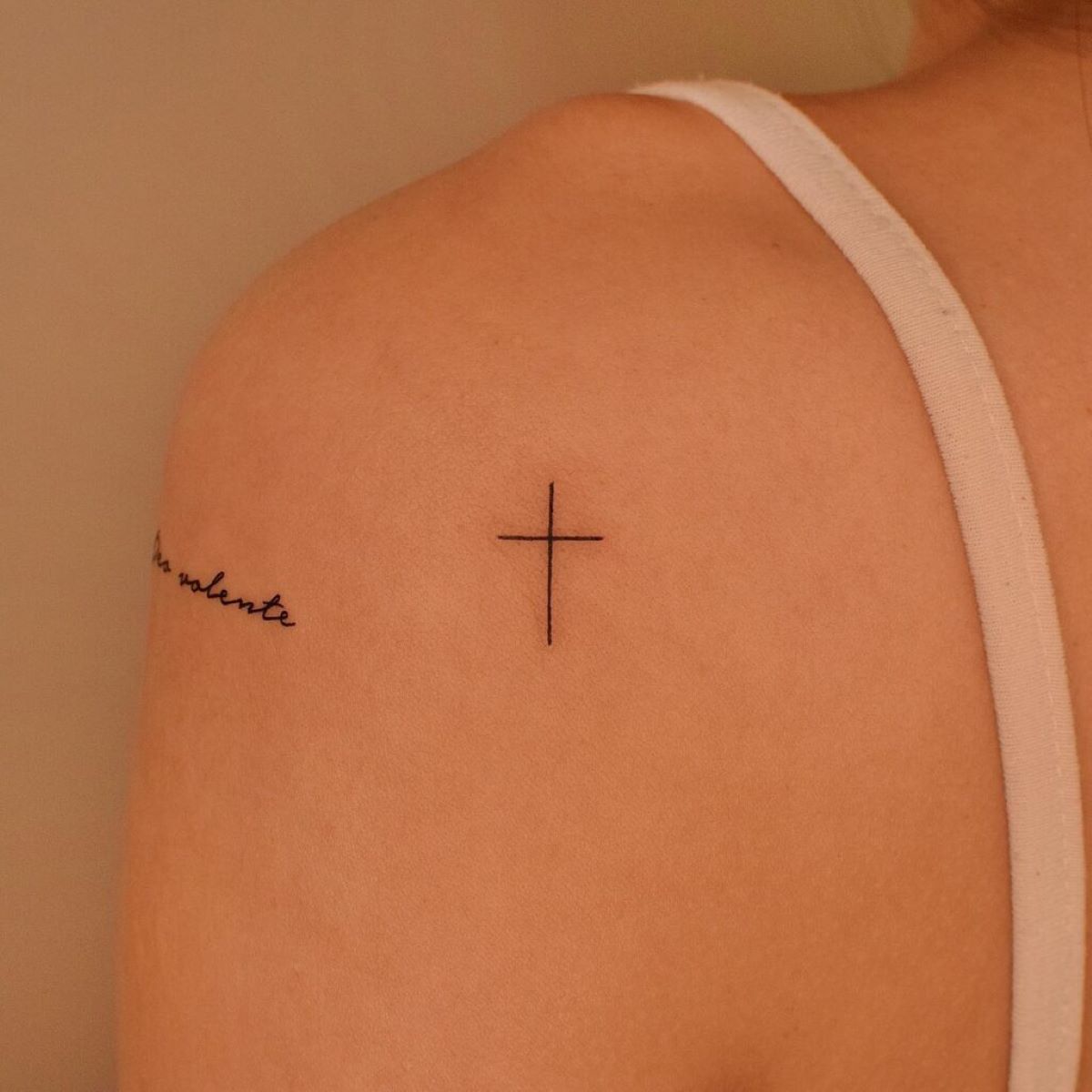Home>Arts and Culture>The Hidden Meaning Behind The Iron Cross Tattoo
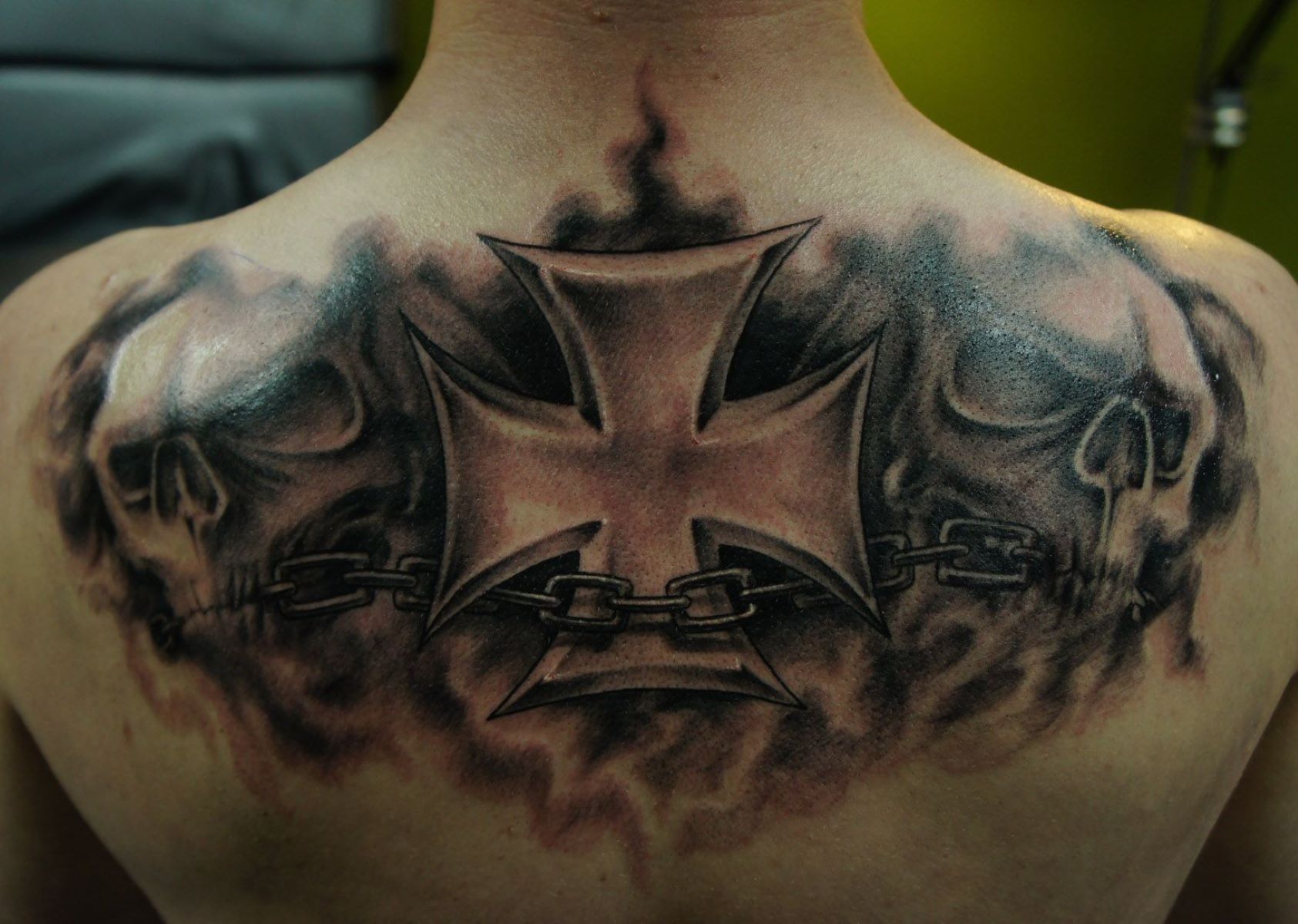

Arts and Culture
The Hidden Meaning Behind The Iron Cross Tattoo
Published: February 2, 2024
Uncover the symbolism and history of the Iron Cross tattoo in the world of arts and culture. Delve into the hidden meanings behind this iconic symbol.
(Many of the links in this article redirect to a specific reviewed product. Your purchase of these products through affiliate links helps to generate commission for Regretless.com, at no extra cost. Learn more)
Table of Contents
Introduction
Tattoos have long been a form of self-expression, with each design carrying its own unique symbolism and significance. Among the myriad of tattoo choices, the Iron Cross stands out as a powerful and enigmatic symbol that has captivated the attention of enthusiasts and historians alike. Its rich history, deep-rooted symbolism, and controversial connotations make the Iron Cross tattoo a subject of intrigue and fascination.
In this article, we will embark on a journey to unravel the hidden meanings behind the Iron Cross tattoo. We will delve into the historical origins of the Iron Cross, explore its prominent place in tattoo culture, and decipher the profound symbolism associated with this iconic emblem. Additionally, we will navigate through the controversies that have surrounded the Iron Cross tattoo, shedding light on the diverse perspectives and interpretations that have shaped its reputation.
Join us as we unravel the mystique of the Iron Cross tattoo, uncovering the layers of history, symbolism, and controversy that have contributed to its enduring allure.
The History of the Iron Cross
The Iron Cross has a storied history that dates back centuries, steeped in military tradition and national identity. Its origins can be traced to 1813 when King Frederick William III of Prussia established the award as a military decoration during the Napoleonic Wars. The Iron Cross was intended to honor bravery and valor on the battlefield, serving as a symbol of distinction for Prussian soldiers who demonstrated exceptional courage in combat.
This iconic emblem underwent several iterations throughout history, with each incarnation reflecting the prevailing ethos of the era. The original design featured a simple yet striking cross pattée, exuding a sense of strength and resilience. Over time, subsequent versions of the Iron Cross incorporated variations in shape, material, and inscriptions, mirroring the evolving sociopolitical landscape of Germany.
Notably, the Iron Cross gained widespread recognition and reverence during the First and Second World Wars, becoming synonymous with the indomitable spirit of the German military. Its association with renowned military figures and heroic deeds further solidified its place as a revered symbol of bravery and sacrifice.
Despite its deep-rooted ties to German military history, the Iron Cross transcended national boundaries and found resonance beyond the realm of warfare. Its timeless appeal and striking aesthetic captivated individuals across diverse cultures, leading to its incorporation into various art forms, including literature, music, and, notably, tattoo artistry.
The enduring legacy of the Iron Cross is a testament to its enduring significance and enduring relevance. Its evolution from a military decoration to a cultural icon is a testament to its enduring appeal and enduring relevance, embodying a legacy that spans generations and transcends geopolitical boundaries.
As we unravel the history of the Iron Cross, we gain a profound appreciation for its enduring legacy and the indelible mark it has left on the tapestry of human history. From its origins as a symbol of valor on the battlefield to its enduring presence in contemporary culture, the Iron Cross stands as a testament to the enduring power of symbolism and the timeless allure of enigmatic emblems.
The Iron Cross in Tattoo Culture
The Iron Cross holds a revered position in the realm of tattoo culture, serving as a captivating emblem that embodies a potent blend of historical significance and aesthetic allure. Within the vibrant tapestry of tattoo artistry, the Iron Cross has emerged as a timeless symbol that resonates with individuals seeking to convey a sense of strength, resilience, and individuality through their inked expressions.
Tattoo enthusiasts and artists alike have been drawn to the striking visual appeal of the Iron Cross, which exudes a sense of boldness and mystique. Its symmetrical form and intricate design elements make it a compelling choice for those seeking a tattoo that commands attention and evokes a sense of enigmatic allure.
The incorporation of the Iron Cross into tattoo culture transcends mere aesthetic appeal, as it carries profound historical and cultural significance. For many, adorning their skin with the Iron Cross represents a tribute to the valor and sacrifice of past generations, particularly those who served in the military. It serves as a poignant reminder of the indomitable spirit and unwavering courage that the Iron Cross symbolizes, paying homage to the timeless virtues of bravery and honor.
Moreover, the Iron Cross has permeated various subcultures, from bikers and rock musicians to military veterans and alternative lifestyle communities. Its versatile symbolism and evocative presence have made it a cherished emblem within these diverse circles, where it embodies a spectrum of meanings ranging from rebellion and nonconformity to honor and allegiance.
In the realm of tattoo artistry, the Iron Cross serves as a versatile motif that can be rendered in a myriad of styles, from traditional black ink designs to elaborate, vibrant compositions. Its adaptability and timeless appeal make it a favored choice for both seasoned tattoo aficionados and individuals embarking on their first inked journey.
As the Iron Cross continues to command a prominent place in tattoo culture, it stands as a testament to the enduring power of symbols and their capacity to transcend time and space. Its presence on the skin of countless individuals serves as a living testament to its timeless allure and the profound resonance it holds within the realm of tattoo artistry.
The Iron Cross, with its rich historical legacy and captivating aesthetic, remains an enduring emblem in tattoo culture, weaving together threads of history, symbolism, and personal expression to create a tapestry of enduring significance and enigmatic allure.
The Symbolism of the Iron Cross Tattoo
The Iron Cross tattoo is imbued with profound symbolism that transcends its aesthetic appeal, encapsulating a myriad of meanings that resonate deeply with those who choose to adorn their skin with this iconic emblem. At its core, the Iron Cross represents a potent fusion of historical legacy, personal valor, and enduring resilience, making it a symbol that speaks volumes without uttering a single word.
One of the central themes embodied by the Iron Cross tattoo is that of bravery and courage. Stemming from its origins as a military decoration that honored acts of valor on the battlefield, the Iron Cross serves as a poignant tribute to the unwavering fortitude and daring spirit of those who have faced adversity with unyielding resolve. When emblazoned on the skin, the Iron Cross becomes a testament to the wearer's inner strength and willingness to confront challenges head-on, embodying the ethos of resilience and bravery in the face of adversity.
Furthermore, the Iron Cross carries with it a sense of honor and integrity, reflecting the timeless virtues of nobility and ethical conduct. Those who choose to adorn themselves with this emblem often do so as a mark of reverence for the principles of honor and dignity, seeking to embody these noble ideals in their daily lives. The Iron Cross, with its storied history of recognizing acts of gallantry and sacrifice, serves as a tangible reminder of the enduring value of integrity and ethical conduct, inspiring individuals to uphold these virtues in their interactions with the world.
In addition to its association with valor and honor, the Iron Cross also embodies a spirit of individuality and nonconformity. Within the realm of tattoo culture, it serves as a symbol of personal strength and resilience, signifying the wearer's willingness to chart their own path and stand steadfast in their convictions. The bold and enigmatic nature of the Iron Cross resonates with those who embrace a nontraditional outlook on life, symbolizing their refusal to be confined by societal norms and expectations.
Moreover, the Iron Cross carries a sense of heritage and tradition, linking the wearer to the rich tapestry of history and cultural significance. Whether as an homage to ancestral roots or a nod to a storied military legacy, the Iron Cross tattoo encapsulates a connection to the past, serving as a tangible link to the enduring traditions and narratives that have shaped the wearer's identity.
In essence, the symbolism of the Iron Cross tattoo encompasses a tapestry of themes, from bravery and honor to individuality and heritage, weaving together a narrative of profound significance and personal resonance. As individuals choose to etch this emblem onto their skin, they imbue it with their own stories and aspirations, infusing it with a deeply personal symbolism that transcends its historical origins, making it a timeless emblem of enduring relevance and enigmatic allure.
The Controversy Surrounding the Iron Cross Tattoo
The Iron Cross tattoo, despite its enduring popularity and rich historical significance, has been shrouded in controversy that has sparked impassioned debates and divergent viewpoints. At the heart of the controversy lies the complex interplay between the emblem's historical associations, its adoption by various subcultures, and the divergent interpretations of its symbolism in contemporary society.
One of the central points of contention surrounding the Iron Cross tattoo stems from its historical ties to German military tradition, particularly its association with the First and Second World Wars. For some, the emblem evokes painful memories of conflict and oppression, serving as a potent reminder of the atrocities committed during wartime. As a result, the display of the Iron Cross, whether in the form of a tattoo or as a standalone symbol, has been met with skepticism and condemnation from those who view it through the lens of historical trauma and collective suffering.
Furthermore, the adoption of the Iron Cross by certain subcultures, such as biker groups and alternative lifestyle communities, has contributed to the controversy surrounding the emblem. In these contexts, the Iron Cross has been appropriated as a symbol of rebellion, nonconformity, and countercultural identity. While some individuals embrace the emblem as a representation of personal ethos and individualism, others perceive its usage within these subcultures as a misappropriation of its historical significance, potentially trivializing its solemn connotations.
The divergent interpretations of the Iron Cross's symbolism in contemporary society have further fueled the controversy surrounding the tattoo. While some view it as a tribute to bravery, honor, and heritage, others regard it with suspicion, questioning its connotations and the message it conveys. The multifaceted nature of the Iron Cross's symbolism has led to a spectrum of opinions, with proponents and detractors offering contrasting perspectives on its appropriateness and cultural resonance.
Amidst the controversy, it is essential to recognize the nuanced and multifaceted nature of the Iron Cross's symbolism, acknowledging that its significance is shaped by diverse historical, cultural, and personal contexts. The emblem's complex legacy, coupled with its adoption by varied subcultures, has contributed to a discourse that reflects the intricacies of historical memory, cultural appropriation, and individual expression.
As the debate surrounding the Iron Cross tattoo continues to unfold, it underscores the importance of engaging in thoughtful dialogue and critical reflection on the intersection of symbols, history, and contemporary culture. By navigating the complexities of its symbolism and historical associations, we can gain a deeper understanding of the emblem's enduring impact and the diverse perspectives that shape its place in the tapestry of tattoo artistry and cultural discourse.
Conclusion
In conclusion, the enigmatic allure of the Iron Cross tattoo transcends its visual appeal, delving into the depths of history, symbolism, and contemporary discourse. This iconic emblem, with its origins deeply rooted in military tradition, has evolved to become a timeless symbol of bravery, honor, and individuality within the realm of tattoo culture. Its rich historical legacy, spanning centuries and continents, intertwines with its enduring resonance in contemporary society, creating a tapestry of nuanced symbolism and divergent interpretations.
The journey through the history of the Iron Cross unveils a narrative of valor, resilience, and cultural evolution. From its inception as a military decoration to its incorporation into diverse facets of art and culture, the Iron Cross has left an indelible mark on the collective consciousness, embodying a legacy that transcends geopolitical boundaries and temporal constraints.
Within the realm of tattoo culture, the Iron Cross stands as a testament to the enduring power of symbols, serving as a cherished emblem that resonates with individuals from varied backgrounds and subcultures. Its symbolism, encompassing themes of bravery, honor, individuality, and heritage, weaves a narrative of personal expression and profound significance for those who choose to adorn themselves with this iconic emblem.
However, the controversy surrounding the Iron Cross tattoo underscores the complex interplay between historical memory, cultural appropriation, and individual interpretation. The divergent viewpoints and impassioned debates surrounding its symbolism serve as a testament to the emblem's multifaceted nature and the diverse lenses through which it is perceived in contemporary society.
As we navigate the complexities of the Iron Cross tattoo's symbolism and historical associations, we are reminded of the enduring power of symbols to evoke emotions, provoke discourse, and transcend linguistic barriers. The enigmatic allure of the Iron Cross endures, encapsulating a timeless legacy that continues to captivate and intrigue, inviting contemplation and reflection on the interwoven threads of history, symbolism, and personal expression.
In essence, the Iron Cross tattoo stands as a testament to the enduring resonance of symbols, serving as a conduit for individual narratives, cultural dialogues, and the timeless allure of enigmatic emblems. Its presence on the skin of countless individuals embodies a living testament to its enduring significance, weaving together the diverse tapestries of history, symbolism, and personal expression to create a narrative that transcends time and space.

